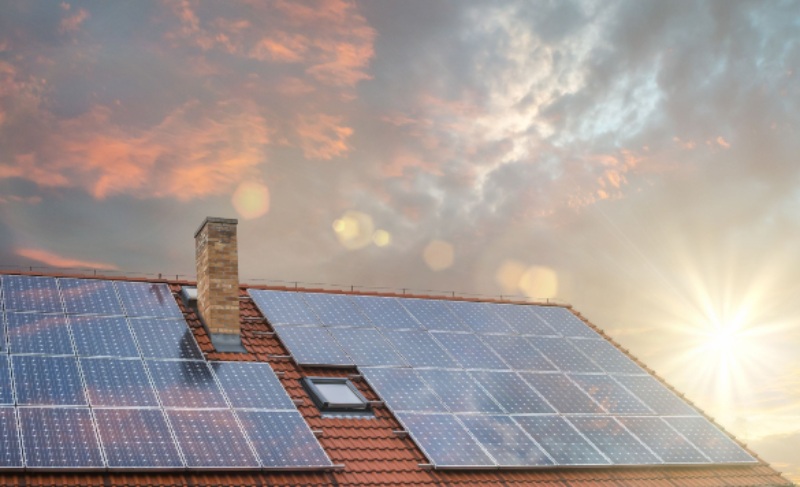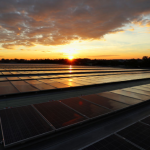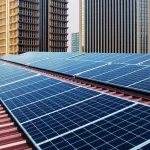
There are several strategic steps to install solar electric panels NJ for residential rooftops. When thoughtfully planned, the solar installation process can be a sustainable solution to help New Jersey property owners reduce electrical expenses. If you are in the solar energy market, it is important to understand how the procedure works. Indeed, there are required permits, documents, resources, expenses, and inspections that you need to consider. As one of the most progressive states for renewable solar energy, New Jersey contractors have developed systematic plans to streamline the installation process. Solar panel companies in NJ are extremely efficient in helping you plan, design, and deploy your solar system. Read on to learn about the essential steps to install solar electric panels NJ for residential rooftops.
Solar Consultation
Before contractors can install your system, you need to have a solar consultation to find an affordable installation that will meet your sustainability goals. Personalized solar energy consultations can be done in your home. Fortunately, they can also be done over phone and through video calls. These phone and video services are especially useful, as New Jersey is one of the Coronavirus hotspots in the U.S. at the moment. When you get your solar consultation, energy experts personalize your system to match your renewable energy and economical goals. During the meeting, consultants review your electric bill, calculate how much you will save with solar, then design your solar solution. Getting a solar consultation is a key step to getting started on your journey towards renewable energy for your NJ home.
Select Solar Hardware
Once a solar engineer has helped you customize your solar plan, you need to select NJ solar hardware components to find the most economical solar electric solution. There currently two different technologies on the market for solar panels: monocrystalline and polycrystalline. Monocrystalline has a higher efficiency rating and tends to be more expensive. You also need to consider the cost of a racking system, which mounts your panels to your roof for optimal energy collection. In addition, you need an inverter to convert DC current into usable AC electric current for your home. To track energy efficiency and troubleshoot system issues as they arise, you will need a performance monitoring system. You also want to consider solar batteries to generate power when it is not sunny. Selecting solar hardware is crucial to determining your energy efficiency as well as installation cost.
Customize Your Solar Plan
After you have had a solar consultation, you need to customize your solar plan to reduce your New Jersey residential electrical expenses. Usually, the installer will evaluate your home. This includes taking measurements and doing energy calculations to ensure the system is an ideal fit. For instance, south-facing roofs are more suitable for solar electric panels in the state of New Jersey. However, you can alternatively face them on the west or east-facing building structures. Solar engineers will use a tool to gauge how much sunlight the panels will receive at any given position. Customizing your solar plan is another essential step to finding an affordable solar installation for your property.
Obtain System Finances & Rebates
Moreover, you need to obtain system finances and rebates to install your solar electric panels on your New Jersey home. Luckily, your solar installer will discuss financing mechanisms and rebate programs for your solar power system. There are dozens of solar programs in NJ to help you offset installation costs across your system. They will even assist you in filling out paperwork. Notably, home equity loans and solar lease financing options are available to help you make payments on your photovoltaic system. You can also finance through the power purchase agreement. Here, the solar provider installs your system, then sells you the electricity at a fixed contractual rate for a set period of time. Another financial incentive for solar energy in NJ is that the equipment is exempt from sales tax and their value will be exempt from property tax. You need to obtain system finances and rebates to ensure your solar energy installation is affordable.
Approval & Interconnection
The final step of converting to solar energy and starting to utilize sustainable electric energy is approval and interconnection. Before you can connect your photovoltaic panels to the electric grid, a town representative needs to inspect the panels and approve them. In this inspection, the representative will check your installer’s work. They will verify that the wiring was done correctly, the mounting is safe, and the install meets standard electric and roof setback codes. After this, you will be ready for grid interconnection. As long as there are no issues, a representative from your electric company will connect your solar system to the grid. The town and utility approval process is generally two weeks to a month. Approval and interconnection is essential to complete the solar installation process to start saving electrical expenses on your New Jersey home.
There are several important steps to install solar electric panels for your NJ residential rooftop. First, you need to have a solar consultation to find out whether solar energy is an affordable way to meet your sustainability goals. After the solar consultation, you need to customize your solar plan to determine the most cost-effective panel structures. Next, you need to select solar hardware for your system, keeping expenses and energy efficiency in mind. Once you have determined the most suitable hardware options, you need to work with your professional installer to obtain system finances and rebates. Finally, your local town and utility provider need to give you approval and interconnection to complete your solar installation process. Consider these essential steps to install solar electric panels NJ for residential rooftops and meet your sustainability goals.




